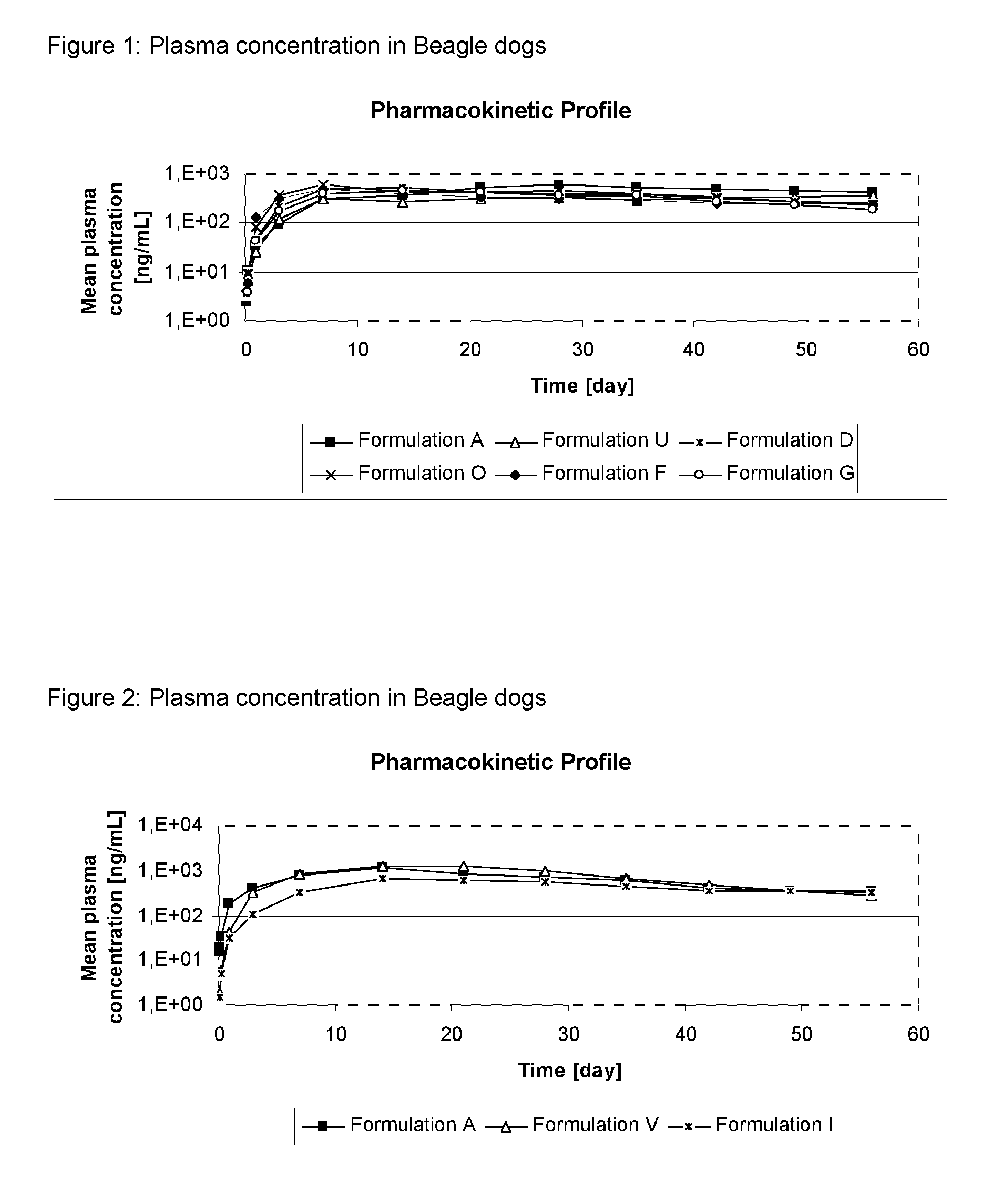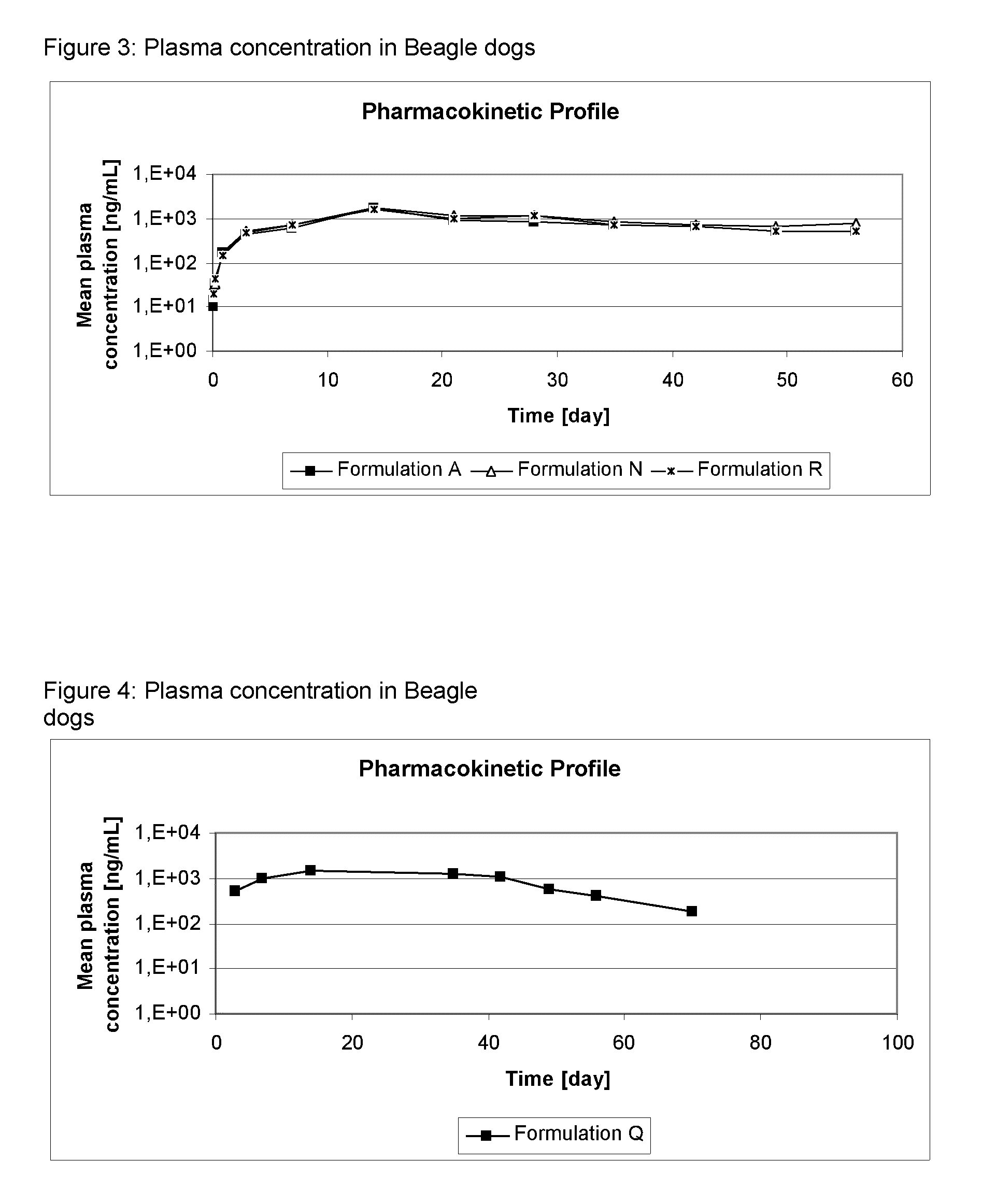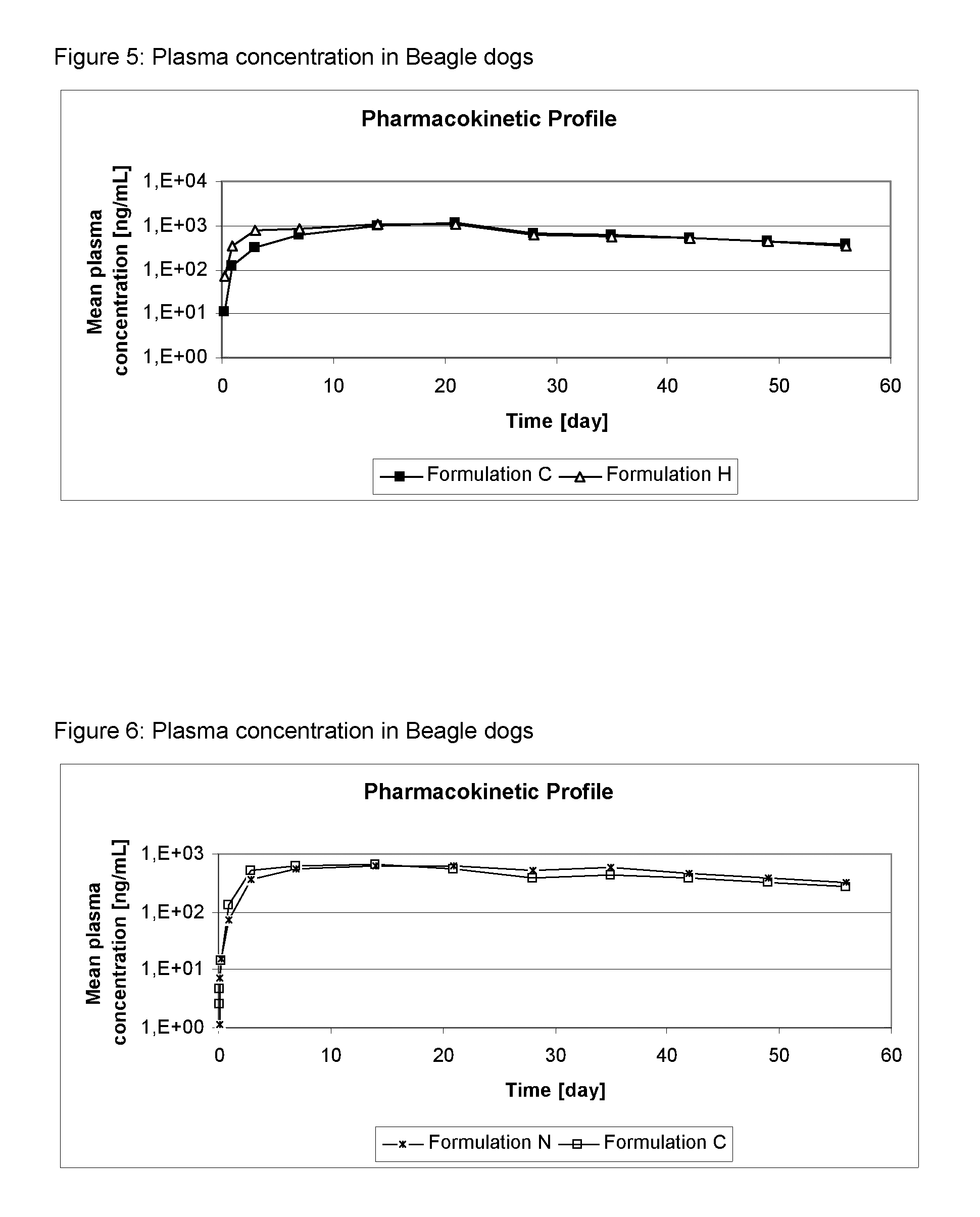Topical localized isoxazoline formulation
a technology of isoxazoline and formulation, applied in the direction of antiparasite agents, biocides, drug compositions, etc., can solve the problems of insolubility (crystallization) of active ingredients, difficulty in applying effective amounts of isoxazoline compounds with acceptable cosmetic appearance, and affecting the appearance of the patient, etc., to achieve acceptable cosmetic appearance
- Summary
- Abstract
- Description
- Claims
- Application Information
AI Technical Summary
Benefits of technology
Problems solved by technology
Method used
Image
Examples
example 1
Preparation of Formulations According to the Invention
[0118]The calculated amount of e.g. 7 grams of 4-[5-(3,5-Dichlorophenyl)-5-trifluoromethyl-4,5-dihydroisoxazol-3-yl]-2-methyl-N-[(2,2,2-trifluoro-ethylcarbamoyl)-methyl]-benzamide (Compound A), were weighted and filled into a flask. The required volume of excipients was added, e.g. 8 mL of DMA and 6.25 mL of DMSO. Compound A was dissolved under mild stirring or shaking. This solution was brought to a final volume of 25 mL with ethyl lactate.
[0119]Using essentially the same procedure described hereinabove for composition C, composition A-V of table 2 and the formulations of table 3 were prepared. An alternative approach to the preparation was to weigh-in the excipients. The required weight was calculated based on the density of each product. Or, the order of addition was changed, e.g. excipients were blended and Compound A was introduced at a later stage.
[0120]Physicochemical parameters, that indicate the suitability ...
example 3
In Vivo Trials—Spot-on Administration of the Formulations to Dogs
[0133]The formulations of Table 2 were administered as spot-on to dogs at an 4-[5-(3,5-Dichlorophenyl)-5-trifluoromethyl-4,5-dihydroisoxazol-3-yl]-2-methyl-N-[(2,2,2-trifluoro-ethylcarbamoyl)-methyl]-benzamide (Compound A) dosis of 25 mg / kg bodyweight. Dogs were observed for local and systemic tolerance of the treatment and the cosmetic appearance of the administration site was evaluated.
[0134]Plasma samples were taken of all dogs pre-administration and 2, 4, 8 hours after administration, on Day, D1, D3, D7 and, D14 and subsequently weekly until D56. The plasma was analyzed for Compound A by HPLC-MS / MS.
[0135]Results: The mean concentration of compound A in dog plasma is shown in FIGS. 1 to 6.
[0136]No local or systemic adverse reactions were observed. The cosmetic appearance was acceptable for the formulations, as only minor effects on appearance were detected for a short duration.
example 4
In Vivo Trials—Formulation Comprising Compound A and Moxidectin Spot-on Administration to Dogs
[0137]Formulation N of Table 2 was administered as spot-on to dogs at a Compound A dosage of 25 mg / kg bodyweight and moxidectin dosage of 2.5 mg / kg bodyweight. Dogs were observed for local and systemic tolerance of the treatment and the cosmetic appearance of the administration site was evaluated. Plasma samples were taken of all dogs pre-administration 2, 4, 8 hours after administration, on Day 0, D1, D3, D7 and D14 and subsequently weekly until D56. The plasma was analyzed for Compound A and moxidectin concentration.
[0138]Results: The mean plasma concentration of the compound A and moxidectin in dogs is shown in FIG. 7.
[0139]No local or systemic adverse reactions were observed. The cosmetic appearance was acceptable.
PUM
| Property | Measurement | Unit |
|---|---|---|
| total volume | aaaaa | aaaaa |
| volume | aaaaa | aaaaa |
| volume | aaaaa | aaaaa |
Abstract
Description
Claims
Application Information
 Login to View More
Login to View More - R&D
- Intellectual Property
- Life Sciences
- Materials
- Tech Scout
- Unparalleled Data Quality
- Higher Quality Content
- 60% Fewer Hallucinations
Browse by: Latest US Patents, China's latest patents, Technical Efficacy Thesaurus, Application Domain, Technology Topic, Popular Technical Reports.
© 2025 PatSnap. All rights reserved.Legal|Privacy policy|Modern Slavery Act Transparency Statement|Sitemap|About US| Contact US: help@patsnap.com



